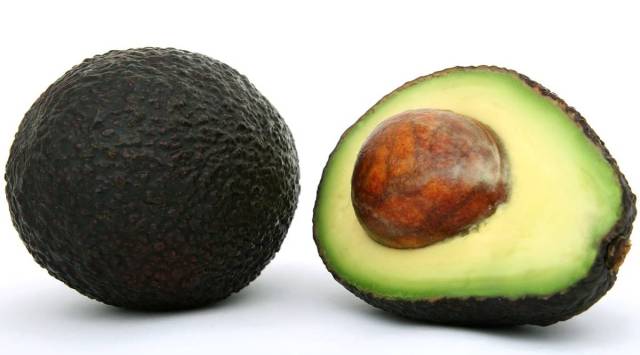How an avocado a day can reduce LDL cholesterol, lower heart disease risk and help you lose weight
The fruit is rich in monounsaturated fats which increase your fat and calorie-burning capacity. It is high in healthy fat and fibre for better satiety and regulating appetite. Besides recent research justifies its use in our daily diet, say top nutritionists
 Consuming avocados can regulate levels of HDL cholesterol and LDL cholesterol as they are naturally high in heart-healthy monounsaturated fats. (Pic source: Pixabay)
Consuming avocados can regulate levels of HDL cholesterol and LDL cholesterol as they are naturally high in heart-healthy monounsaturated fats. (Pic source: Pixabay) Your breakfast platter and salads could help you lose belly fat if you include a healthy portion of avocados or dip your food in a creamy relish made from them. Recent research papers, be it a 2021 study on avocados that showed how eating them daily reduced the belly fat in women within weeks, or this year’s one on their cholesterol-busting properties, only prove their superfood abilities. Belly fat is posing a serious health threat to middling Indians with slowed down metabolism, raising the risk of developing diabetes, heart disease and cancer.
HOW AVOCADO FIGHTS FAT
“Avocado is a good source of heart-healthy monounsaturated fats (MUFA), which have been linked to a reduced risk of heart disease, various vitamins and minerals, including vitamin K, folate, potassium, vitamin C and E for tissue growth and repair,” says Dr Eileen Canday, Head of Department of Nutrition and Dietetics at Sir H N Reliance Foundation Hospital and Research Centre, Mumbai. “It is the monounsaturated fats which increase your fat and calorie-burning capacity. Besides, avocados are high in healthy fat and fibre, meaning they make you feel full longer. The prolonged satiety and the longer time taken to break down the fibre means the food stays longer in your stomach. The fibre also neutralises sharp sugar spikes,” the nutritionist adds.
Shedding weight becomes harder with age as the levels of AMPK, an enzyme that controls abdominal fat spread, decline. “Avocado helps in these levels. It has 77 per cent of monounsaturated fat and is rich in oleic acid. These decrease inflammation in the body, limit bad cholesterol and help in better appetite regulation. We have used it on our weight loss patients and found good results. Which is why we recommend it in our diet plans,” says Dr Priyanka Rohatgi, Chief Nutritionist, Apollo Hospitals. “Avocado greatly benefits the gut microbiome. It is a good prebiotic. It helps in the formation of short chain fatty acids which are conducive for good bacteria to thrive. And a sound gut health keeps most chronic diseases at bay, even visceral fat away. The abundance of gut microflora and reduced levels of inflammatory markers mean you are limiting chances of developing obesity and metabolic disorders,” she adds.
An earlier research, published in the Journal of Nutrition and Dietetics, had found that the consumption of avocado may reduce total cholesterol and low density lipoprotein (LDL) or what we call the bad cholesterol. The researchers also found no negative impact of avocado consumption on body weight.
HOW MUCH TO CONSUME?
However, it is important to note that avocados are high in calories and fat. “Even though the fat in avocados is mostly monounsaturated, consuming excessive amounts may contribute to weight gain. Therefore, it is advisable to consume avocados in recommended amounts as part of a healthy diet,” says Dr Canday.
“One fruit has 200 calories, so you cannot go about gorging on it. A medium sized or half of a large fruit is enough in a day. You cannot have a full breakfast and then have an avocado shake or a salad as a mid-morning or in-between indulgence. Then you would be overloading calories. And suppose you are on a 1,500-calorie meal plan to lose weight, then you must account for these calories too,” advises Dr Rohatgi.
HOW AVOCADOS BUST CHOLESTEROL
The human body requires an ideal ratio of saturated fatty acids, monounsaturated fatty acids and polyunsaturated fatty acids to prevent cardiovascular diseases and maintain a healthy heart. “One of the most studied benefits of avocado consumption is its impact on cholesterol levels. Consuming avocados can regulate levels of HDL cholesterol and LDL cholesterol as they are naturally high in heart-healthy monounsaturated fats. Since they contain vitamins like C and K, they are a good source of fibre. They are the richest fruit source of phytosterols or cholesterol-lowering nutrients. In 2019, a research by the University of Penn State had also suggested that eating one avocado a day may help keep bad cholesterol at bay. In a randomised, controlled feeding study, the researchers found that eating one avocado a day was associated with lower levels of LDL (specifically small, dense LDL particles) and oxidised LDL in obese adults. Overall, daily avocado consumption resulted in total cholesterol decreasing 2.9 milligrams per deciliter (mg/dL) and LDL cholesterol decreasing 2.5 mg/dL among the study participants,” says Dr Canday.
Specifically, the study found that avocadoes helped reduce LDL particles that had been oxidised. These particles start a chain reaction that can cause atherosclerosis. Similar to the way oxygen can damage food — like a cut apple turning brown — the researchers said oxidation is also bad for the human body. After five weeks on the avocado diet, participants had significantly lower levels of oxidised LDL cholesterol than before the study began or after completing the low- and moderate-fat diets. Participants also had higher levels of lutein, an antioxidant, after the avocado diet. All LDL is bad, but small, dense LDL is worse, which avocados can tackle.
HOW TO INCLUDE AVOCADO AS PART OF YOUR DIET
Avocado is a versatile fruit which is not difficult to incorporate into your meals. “Though the flavour and texture can be an acquired taste for some people, you can consider making a fresh guacamole and serving it with baked nacho chips, whole grain crackers, vegetable crudités or pan seared fish. It can also be used as a dressing, topping or spread on whole grain toast or salads,” suggests Dr Canday. If you are someone who has a sweet tooth, you should definitely try chocolate avocado mousse for a healthy twist to your regular desserts. If you simply enjoy the taste of avocados, slice one in half, top with black pepper, and use a spoon to eat it right out of the skin.
- 01
- 02
- 03
- 04
- 05































